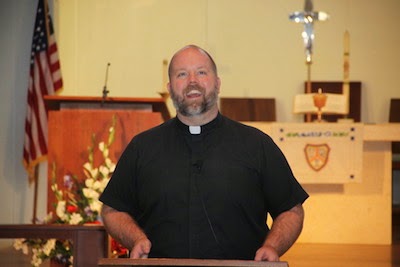Today I preached a sermon on the "
Seven Gifts of the Christian Faith". In it I outlined seven core ideas of the Christian Faith, which bring a rich depth to thinking about God, morality and spirituality, and which are unique among worldviews. These seven ideas form the basis of a robust Christian systematic theology, which link together Biblical and Historical ideas in a cohesive, consistent, constructive explanation of why the world is the way it is.
At some point in the future, I will turn these seven ideas into a series of essays or perhaps even a book. But for summary's sake, here is a brief description of these seven unique ideas (you can also see how they are linked in the chart above):
TRINITY: God is an eternal community of shared Love between the Father, Son, and Spirit, in infinite goodness, truth, and beauty.
AGAPE LOVE: Unconditional Love is the reason for our creation, why we are given freedom, and why God heals us when we misuse our freedom.
INCARNATION: To show us the depth of God's Love and heal us, God empties Godself and becomes human in the person of Jesus the Messiah.
SUBSTITUTION: In Jesus, God takes into Godself the full consequences of our sin, suffering, and death, by suffering with humans, for humans, as a human.
RESURRECTION: The Love of God is stronger than death, shown in Jesus' return from the grave, which guarantees the promise of our own resurrection.
SACRAMENT: The Holy Spirit shares Christ's life with us through tangible activities that continue the mission of the Incarnation in the world today.
ATONEMENT: God's ultimate desire is to make us at-one with God, through Jesus, in the Spirit, as we share fully in the eternal life of the Trinity.
After preaching the sermon, a close friend of mine noted that it is a "terrific summary of Christian theology", yet that "the individual items are not all unique, but the combination of the seven certainly is". This is a great observation that raises the question: Just how unique is the Christian worldview anyway? Are these concepts completely without parallel in other religions and worldviews?











